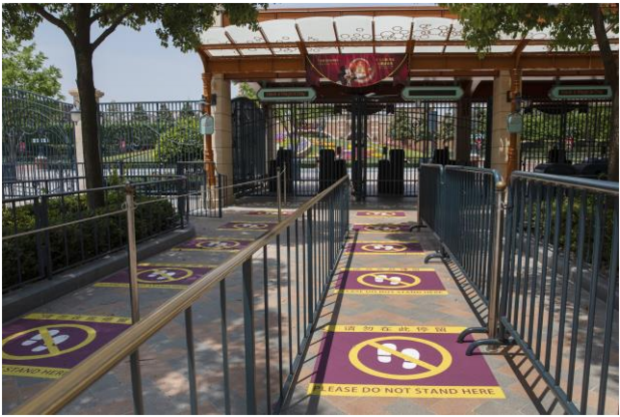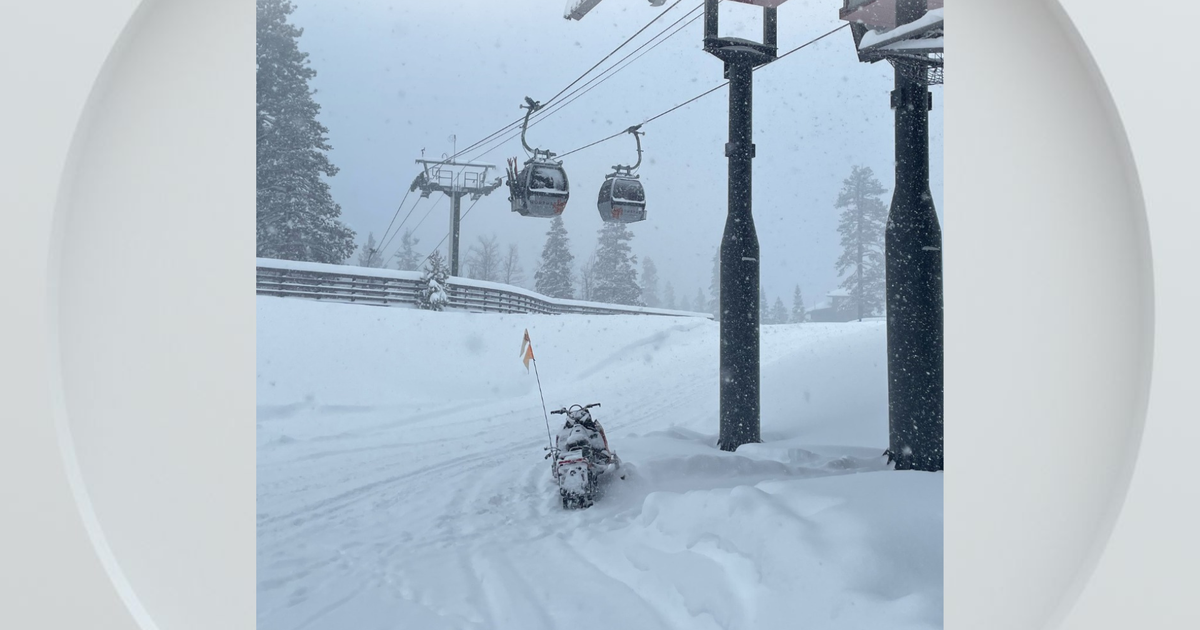Disney reopens its Shanghai theme park with masks and limits
Visitors in face masks streamed into Shanghai Disneyland as the theme park reopened Monday in a high-profile step toward reviving tourism that was shut down by the coronavirus pandemic.
The House of Mouse's experience in Shanghai, the first of its parks to reopen, foreshadows hurdles global entertainment industries might face. Disney is limiting visitors, requiring masks and checking for the virus's telltale fever. Reserve tickets for the resort sold out three days before the reopening.
"We hope that today's reopening serves as a beacon of light across the globe, providing hope and inspiration to everyone," said Joe Schott, the president of Shanghai Disney Resort.
Tourism has been hit especially hard by controls imposed worldwide that shut down airline and cruise ship travel, theme parks and cinemas. Disney blamed a 91% plunge in its latest quarter profit on $1.4 billion in virus-related costs.
Shanghai Disneyland attracted about 12 million guests last year and a total of 66 million since it opened in 2016. Visitors to Shanghai Disney are required to show government-issued identification and use a smartphone app issued by the Shanghai city government that tracks their health and contacts with anyone who might have been exposed to the virus.
To minimize crowds, Chinese officials have placed a 30% capacity limit on the resort, a facility that normally sees 80,000 visitors daily. That means the park can only accommodate 24,000 patrons per day.
"We're going to actually open up far below that just to have our training wheels on with our new procedures and processes to make sure we don't have any lines backing up either as guests are entering into the park or as they wade through the park," CEO Bob Chapek said in the earnings call last week.
Disney guests, some wearing Mickey Mouse ears, and children in Little Mermaid, Mulan, Minnie Mouse and Snow White costumes were checked Monday for fever at the park gate and then walked down nearly empty lanes as employees waved to them.
"It really felt like a princess's homecoming, especially when the staff lined up after the ticket check and said, 'Welcome home!'," said visitor Dilys Ding of Shanghai.
"It feels like so many fewer people than normal. You don't need to line up," said Ding, 26. "You can play all the entertainment items at least once. That's very good."
Decals on sidewalks and at lines for attractions show visitors where to stand to leave space between themselves. The company said rides will be limited to one group of visitors per car to keep strangers apart.
"We don't want people too close — front, back or side," said Andrew Bolstein, the park's senior vice president for operations.
Disney Springs reopening
Disney, headquartered in California, will reopen Disney Springs, a shopping, dining and entertainment complex attached to the Walt Disney World theme park in Florida this month with "limitations on capacity, parking and operating hours," Vice President Matt Simon said in a statement this week. Disney hasn't released specifics on the capacity, parking or hours, but said employees and guests must wear masks.
All Disney resorts in the United States closed in March. The company also furloughed some 43,000 employees last month. The company is likely losing about $500 million for every two weeks the Florida and California theme parks remain closed, Chief Financial Officer Christine McCarthy said during a conference call last week.
Disney has yet to to set a date for reopening Disney World or its other parks worldwide, but experts who study amusement park management say visitors will have a much different experience compared to pre-coronavirus.
"They'll need to keep their costs down, so they're not going to open every hot dog stand, and some rides won't be available," Farmingdale State College business professor Martin Lewison, who studies the amusement parks industry, told CBS MoneyWatch.




